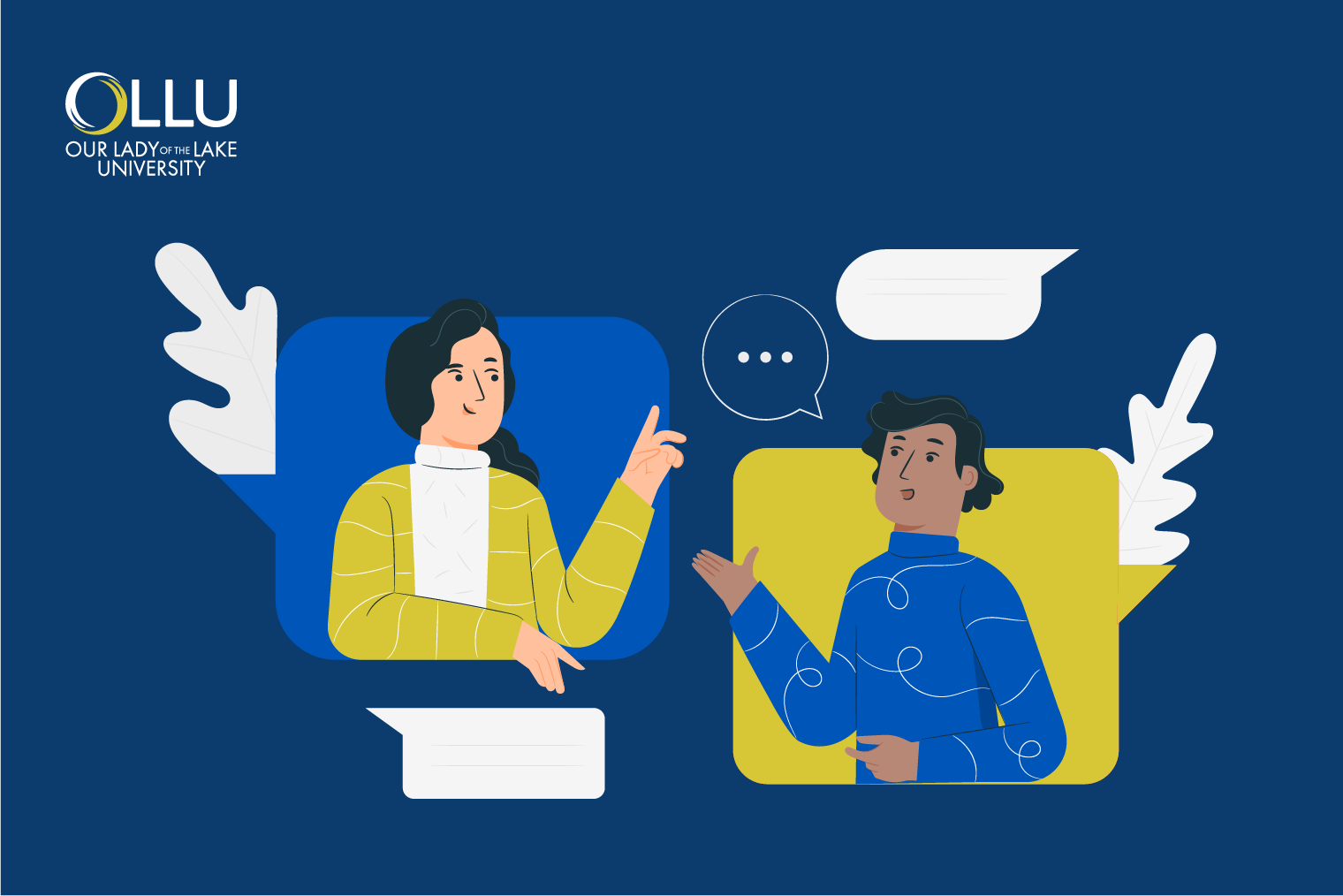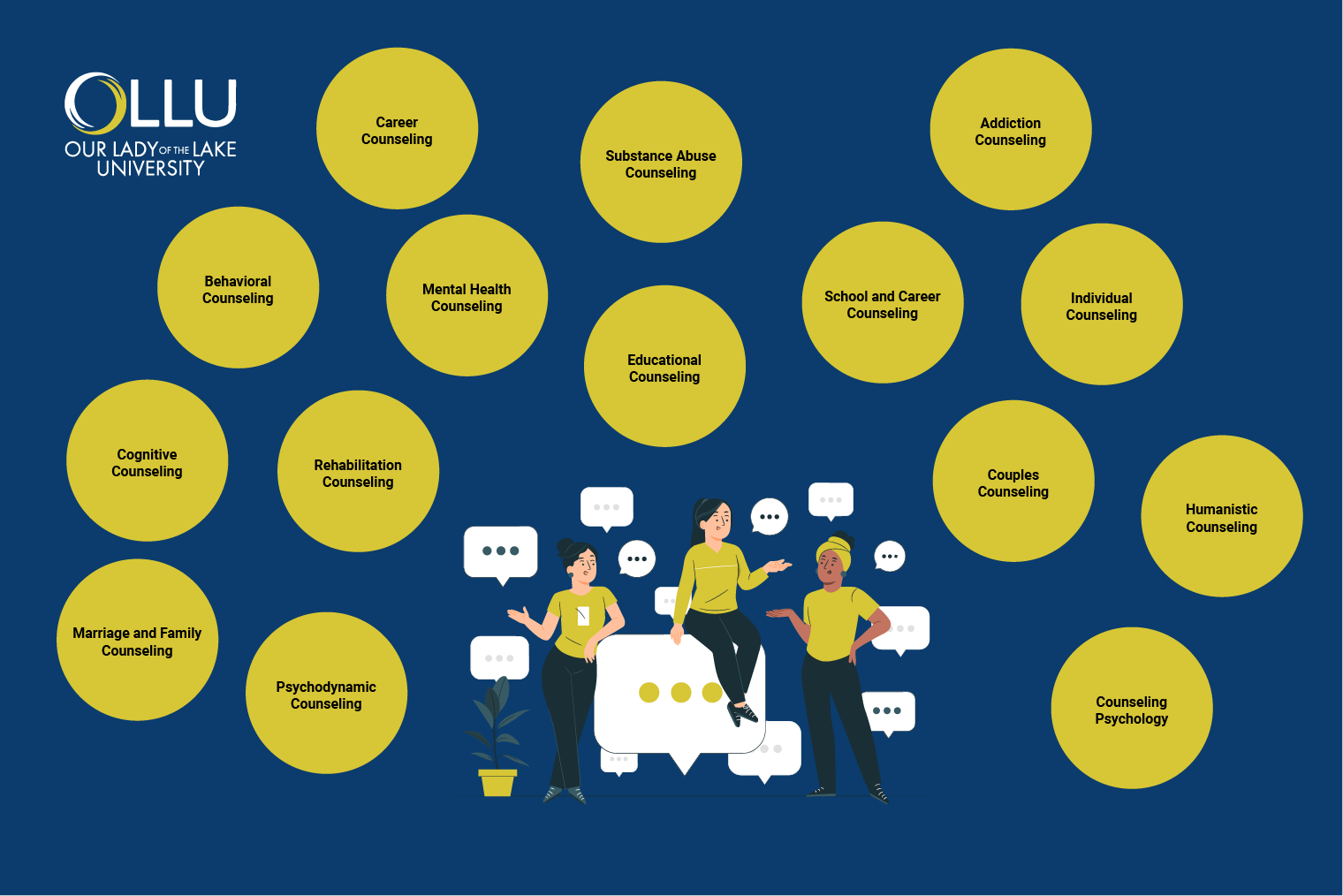15 Types of Counseling You Should Know About
Jun 04, 2024

Counseling is vital in promoting mental health and well-being by offering guidance,
support, and therapeutic interventions to individuals facing various challenges in
life. In this blog post, we'll explore 15 different types of counseling, each with
its unique focus and approach toward addressing specific issues and supporting clients
on their journey toward personal growth and healing. From marriage and family counseling
to substance abuse counseling, this diverse array of counseling types reflects the
broad spectrum of human experiences and the specialized support needed to navigate
them effectively.
What Is a Counselor?
A counselor is a skilled professional who offers guidance and support to individuals or groups navigating challenges or pursuing personal growth. They serve as compassionate listeners and objective observers, creating a safe space for clients to explore their feelings, beliefs, and behaviors. By fostering a nonjudgmental environment, counselors empower clients to confront obstacles, uncover insights, and develop effective coping strategies.
Whether addressing issues related to mental health, relationships, career choices, or other life transitions, counselors play a crucial role in fostering self-awareness and facilitating positive change.
15 Different Types of Counseling

Counseling encompasses a range of therapeutic approaches designed to help individuals
address various personal concerns. These approaches are tailored to meet the unique
needs and circumstances of each individual seeking counseling. Below, we discuss 15
types of counseling and the roles of professionals involved in each.
Marriage and family counseling
Marriage and family counseling is a specialized therapy that enhances relationships within families and couples. It operates on the belief that healthy relationships are the cornerstone of well-being. Marriage and family counselors play a crucial role in navigating interpersonal dynamics and addressing issues like communication breakdowns, conflict resolution, and parenting challenges. They facilitate open dialogue and promote understanding among family members by creating a safe and supportive environment. To achieve this, counselors employ various therapeutic techniques tailored to each family's unique circumstances, fostering resilience and healthier interaction patterns.
Career counseling
Career counseling is a vital facet of personal development, guiding individuals in exploring diverse career options and making informed decisions about their professional paths. Professionals in this field serve as knowledgeable allies, offering expertise in various aspects of career planning. They provide valuable resources such as career assessments to identify strengths, interests, and aptitudes, aiding clients in aligning their aspirations with suitable career paths.
Moreover, career counselors offer guidance on effective job search strategies, including resume writing, interview preparation, and networking techniques. Beyond initial career choices, they also support individuals in navigating career transitions, whether it involves changing professions, seeking advancement opportunities, or adapting to new workplace environments.
Rehabilitation counseling
Rehabilitation counseling is a specialized field that assists individuals with disabilities in achieving personal, social, and vocational goals. Counselors in this field serve as advocates and allies, offering crucial support to clients as they navigate the challenges posed by their disabilities.
Through a holistic approach, rehabilitation counselors collaborate with clients to identify their strengths, interests, and barriers to success. They provide valuable resources, including access to assistive technologies, vocational training programs, and community services tailored to each individual's unique needs. Finally, rehabilitation counselors offer emotional support and guidance, empowering clients to overcome obstacles and maximize their potential for independence and self-fulfillment.
Mental health counseling
Mental health counseling is a specialized form of therapy designed to assist individuals in coping with a wide range of emotional, psychological, and behavioral challenges. Mental health counselors play a crucial role in providing compassionate support and guidance to clients experiencing mental health disorders. They offer counseling services aimed at addressing issues such as depression, anxiety, trauma, and relationship difficulties.
Through a collaborative and client-centered approach, counselors work to create a safe and nonjudgmental space where individuals can explore their thoughts, feelings, and experiences. They utilize various therapeutic techniques and interventions to help clients develop coping skills, enhance self-awareness, and promote positive behavioral changes.
Substance abuse counseling
Substance abuse counseling is a specialized field dedicated to helping individuals recover from substance abuse disorders and reclaim control over their lives. Substance abuse counselors are pivotal in providing therapy, support groups, and essential resources to clients grappling with addiction. Through a compassionate and client-centered approach, counselors address the complex factors underlying substance abuse, including psychological, social, and environmental influences. They offer individual and group therapy sessions to foster insight, develop coping strategies, and promote sustainable recovery.
Educational counseling
Educational counseling is a specialized form of counseling to assist students in achieving academic success and personal development. Educational counselors advocate for students, offering various support services to address their academic, career, and personal needs. These counselors provide academic guidance by helping students set educational goals, select appropriate courses, and develop effective study habits. Additionally, they offer career planning assistance, including exploring career options, resume writing, and job search strategies. Moreover, educational counselors provide personal counseling to help students navigate challenges such as stress, anxiety, and interpersonal conflicts, fostering emotional well-being and resilience.
School and career counseling
School and career counseling is a multifaceted approach to supporting students' holistic development within educational settings. School counselors are pivotal in promoting students' academic achievement, social growth, and emotional well-being. They provide counseling services to address various issues, including academic challenges, peer relationships, and personal concerns. School counselors also offer guidance on educational and career pathways, assisting students in setting goals, exploring interests, and making informed decisions about their future endeavors. They collaborate with teachers, parents, and other stakeholders to create a nurturing and inclusive school environment that fosters students' success and resilience.
Couples counseling
Couples counseling is a specialized form of therapy designed to assist couples in enhancing their relationship dynamics and resolving conflicts. It provides a supportive and neutral space for partners to explore their thoughts, feelings, and concerns constructively.
Couples counselors play a crucial role in facilitating open and effective communication between partners, helping them express their needs, listen to each other's perspectives, and develop mutual understanding. They address relationship issues such as infidelity, trust issues, or differences in values and goals, guiding couples toward resolution and reconciliation.
Individual counseling
Individual counseling is a fundamental aspect of therapy that centers on assisting individuals in navigating personal challenges, fostering self-awareness, and achieving growth. In individual counseling, clients can delve into their thoughts, emotions, and experiences in a confidential and supportive environment.
Individual counselors are pivotal in providing one-on-one therapy tailored to each client's unique needs and goals. They offer empathetic support, guidance, and encouragement, empowering clients to explore their concerns, set meaningful objectives, and implement positive life changes. Through a collaborative and client-centered approach, counselors facilitate self-exploration, problem-solving, and skill-building, fostering resilience and enhancing overall well-being.
Addiction counseling
Addiction counseling is a specialized field of therapy dedicated to assisting individuals in overcoming addiction and leading healthier, substance-free lives. It encompasses a range of therapeutic approaches aimed at addressing the physical, psychological, and social aspects of addiction.
The role of addiction counselors is significant as they assist clients in addressing the root causes of their addiction, fostering coping mechanisms, and acquiring skills to prevent relapse. They provide individual or group therapy sessions where clients can connect with peers, share experiences, and receive encouragement on their journey to recovery.
Counseling psychology
Counseling psychology is a specialized branch that emphasizes understanding and treating various emotional, social, and behavioral challenges. It embraces a comprehensive perspective on mental health, enriching individuals' general well-being and quality of life. Counseling psychologists provide therapy, assessment, and counseling services to individuals, couples, and families. They help clients navigate life's complexities, develop coping skills, and foster resilience through talk therapy, cognitive-behavioral techniques, and psychodynamic approaches. They also conduct assessments to evaluate clients' psychological functioning, identify areas of strength and growth, and inform treatment planning.
Humanistic counseling
Humanistic counseling is a therapeutic approach that strongly emphasizes the inherent potential for personal growth, self-acceptance, and self-actualization within each individual. It operates on the belief that every person can lead a fulfilling and meaningful life with the right conditions for growth and self-discovery. Humanistic counselors help patients explore their feelings, beliefs, and values in a nonjudgmental environment. They aid clients in developing a more profound self-awareness and self-worth through empathetic listening, genuine understanding, and unconditional positive regard. They encourage clients to embrace their authentic selves, tap into their inner resources, and strive towards realizing their full potential.
Behavioral counseling
Behavioral counseling is a therapeutic approach that centers on identifying and modifying unhealthy behaviors while promoting the development of positive ones. It operates on the principle that behaviors are learned and can be changed through targeted interventions.
Behavioral counselors utilize various techniques to facilitate behavior change in their clients. These techniques may include reinforcement, where desired behaviors are rewarded (to increase frequency); modeling, where clients learn new behaviors by observing others; and cognitive restructuring, which involves challenging and modifying negative thought patterns that contribute to unhealthy behaviors.
Cognitive counseling
Cognitive counseling prioritizes examining and transforming negative thought patterns and beliefs to enhance mental well-being. Rooted in the understanding that our thoughts significantly influence our emotions and behaviors, cognitive counselors work with clients to identify and challenge irrational or distorted thoughts. Through collaborative exploration and analysis, counselors assist clients in recognizing patterns of thinking that contribute to distress and dysfunction. They then guide clients in developing more adaptive and constructive ways of interpreting their experiences. Cognitive counselors utilize techniques such as cognitive restructuring and mindfulness to help clients cultivate self-awareness, challenge self-defeating beliefs, and adopt more balanced and realistic perspectives.
Psychodynamic counseling
Psychodynamic counseling is a therapeutic approach that delves into the unconscious processes and unresolved conflicts that shape an individual's thoughts, feelings, and behaviors. Rooted in psychoanalytic theory, psychodynamic counseling emphasizes exploring past experiences and their influence on present-day functioning. Psychodynamic counselors are crucial in providing a safe and supportive environment for clients to go into their inner worlds, uncover hidden motivations, and gain insight into unconscious patterns. By employing diverse methods like free association, interpreting dreams, and analyzing transference and countertransference dynamics, counselors aid clients in linking past occurrences with present challenges.
The Bottom Line
In this blog post, we've explored diverse counseling types, from marriage counseling to substance abuse counseling, each crucial in fostering mental health. Take the next step in your counseling career with OLLU's Doctor of Psychology degree with a concentration in Counseling Psychology or Master of Arts in Counseling (MAC) . Elevate your impact and empower others towards well-being.
Frequently Asked Questions (FAQs)
What are the key skills required for counseling?
Key skills for counseling include active listening, empathy, communication, problem-solving, and emotional intelligence.
What factors should be considered when choosing a counseling specialty?
When choosing a counseling specialty, consider personal interests, strengths, values, career goals, and the population you want to work with.
What are the differences between a counselor and a psychologist?
The main differences between counselors and psychologists lie in their education and scope of practice. Psychologists typically have doctoral degrees (PhD or PsyD) and can diagnose and treat mental health disorders, while counselors usually have master's degrees and focus on providing therapy and counseling services.